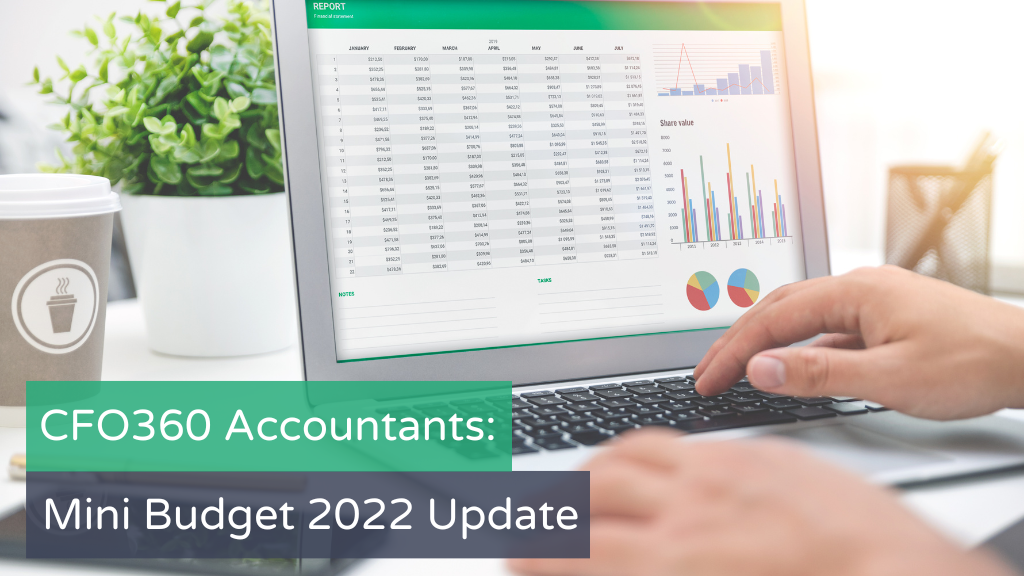Contents
- Introduction
- Income Taxes And Allowances
- National Insurance Contributions Thresholds And Rates
- Corporation Tax
- Other
Introduction
On 23rd September 2022, the Chancellor Kwasi Kwarteng delivered the 2022 Mini Budget. We’ve made a summary of the key measures impacting small, limited companies and individuals.
Income Taxes And Allowances
- The Basic rate of income tax will be cut to 19% a year earlier from April 2023
- The 45% higher rate has been abolished and replaced with a single higher rate of 40%
- There will be a reversal of the increase in dividend tax from April 2023
- The basic rate dividend tax will decrease from 8.75% to 7.5%
- The higher rate dividend tax will decrease from 33.75% to 32.5%.
- The Additional rate dividend tax will decrease from 39.35% to 38.1%
National Insurance Contributions Thresholds And Rates
- The rise in National Insurance Contributions (NICs) rate of 1.25% which was introduced on 6 April 2022 will be reversed from 6 November 2022.
- Adjustment to the NICs rate will be made via employer’s payrolls.
- From 6 November 2022, the previous 2021-22 NICs rates of 12% and 2% will apply, with an employer’s rate of 13.8%.
- There are no changes to the increased NICs thresholds, introduced in July 2022.
Corporation Tax
- The planned increase in corporation tax has been cancelled, so it will remain at 19%.
- This means rates will not rise to 25%
Other
- The government will cut Stamp Duty land tax, with the limit raised to £250,000 or £425,000 for first-time buyers. First-time buyers will also be able to claim tax relief on the first £625,000 of their new homes.
- The planned duty rates increase on beer, wine and spirits is cancelled
- VAT-free shopping will be introduced for overseas visitors.
- Capital allowances Annual investment allowance will remain at £1million.
- There will be an increase in limits for the Seed Enterprise Investment Scheme (SEIS)
- IR35 reforms to be scrapped in April 2023
- This will mean that from 6 April 2023, contractors working for an organisation via an intermediary will once again be responsible for determining their employment status and paying the appropriate amount of tax and national insurance contributions.
Exclusive update from the Chancellor’s economic briefing delivered on 17 October 2022.


